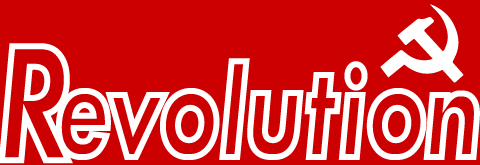The third congress of Joint Action Front (JAF) held on 18 and 19 January 2014 with the main theme “Alternative Political Agenda to Rebuilding Nigeria”. JAF Affiliates, JAF sympathizers and special guests, attended the congress. Some of the guests who graced the historic occasion include President of Academic Staff Union of the Universities (ASUU), leadership of Trade Union Congress (TUC), Nigeria Labour Congress (NLC), representative of College of Education Staff Union (COEASU) and Communist Party of Benin Republic (PCB).
The congress opened on Saturday 18 January with the symposium session. This session was an open session and was divided into two sessions with two main political discussions. The first session was on “The Global capitalist crisis and the Global Revolutionary waves”. The Chairperson of JAF in person of Dr Dipo Fashina gave the leadoff to the discussion with Dr Nasir Fagie (President of ASUU) and Prof Alozie one of the members of JAF as discussants. All the speakers spoke on the Global crisis of the capitalist system. They also went further to point out that capitalist system will not collapse on its own, no matter the crisis, but it has to be consciously overthrown by the oppressed masses under the leadership of working class. They were all unanimous in their conclusion that the only alternative to capitalism that represent the way out for humanity is a system whereby the wealth of the society will be used in the interest of the majority that created that wealth. That system is “Socialism”. 
The second session centered on the “National Confabs, Reform or Revolution. JAF Chairperson also gave the leadoff with Comrade Segun Sango of (DSM), Comrade Akinrinde Kazeem of (CWA) and Baba Aye of (SWL) represented by Comrade Ajayi Adekunle as discussants.
There were ideological differences on the issue. While Comrade Adekunle Ajayi of SWL canvassed for critical participation in the Goodluck confab with the agenda of distributing leaflets, winning the participants over and exposing the futility of the conference.
Comrade Segun Sango of DSM pointed out the diversionary essence of the call but still posited with the need to readdress the “forced” amalgamation that took place in 1914. He demanded the need for all nationalities to still sit together and negotiate the basis of their unity.
Comrade Akinrinde Kazeem of CWA submitted that the Confabs is not only diversionary but also a bourgeois programme with support majorly from petty bourgeois elements, stemming out of the inability of the petty bourgeois to explain its continue deterioration of its condition as the crisis of neo-colonial capitalism gets deepened.
However, contrary to the idea that the root of all the crises is the amalgamation that took place 100 years ago as explained by Comrade Segun Sango, Comrade Kazeem explained that rather than going back to what happened 100 years ago, we should rather look forward as the real source of the crisis is not in our amalgamation but rooted in the capitalist socio economic system that has held us down as a nation for this long. He equally observed that the experience of the past 100 years showed that the Nigerian working class is united. They had even formed their union two years before the said amalgamation and the existence of their various mass organizations confirmed this.
However, all the speakers almost unanimously agreed that what is needed now are not reforms; as the capitalist system has reached a stage where it can no longer grant reform but Revolution, which means complete overthrow of the capitalist system and establishment of new social order i.e. Socialism.
The idea of supporting Goodluck’s Confab or working within it in anyway was totally rejected by the house.
The second day of the congress, 19 January 2014 was strictly the business session; it comprised only of the accredited JAF affiliates and their observers. JAF affiliates that couldn’t meet up with JAF affiliates membership obligations were given observer’s status. This session critically looked at the concrete proposals of building JAF. In view of this fact, the following key resolutions were made.
1. The first and the most historic resolution made at the congress, which also reflected the general leftward movement of the masses, as the crisis of the capitalist system hit harder; was the declaration for “Socialism” as JAF’s ideological alternative to rebuilding Nigeria.
2. The congress also resolved to continue its orientation towards mass labour organizations, NLC & TUC. Organized Labour remains the major force in the capitalist society and it is the only force capable of leading other oppressed groups in the task of liberation from exploitation and oppression.
3. The congress also agreed that JAF structures should be built all over the country and in all Nigerian campuses. Individual members that also want to join JAF were enjoined to do so in their various centers.
The congress ended with the election of new JAF executive members saddled with the responsibility of implementing all these resolutions with a view to building a very virile and principled organization.
